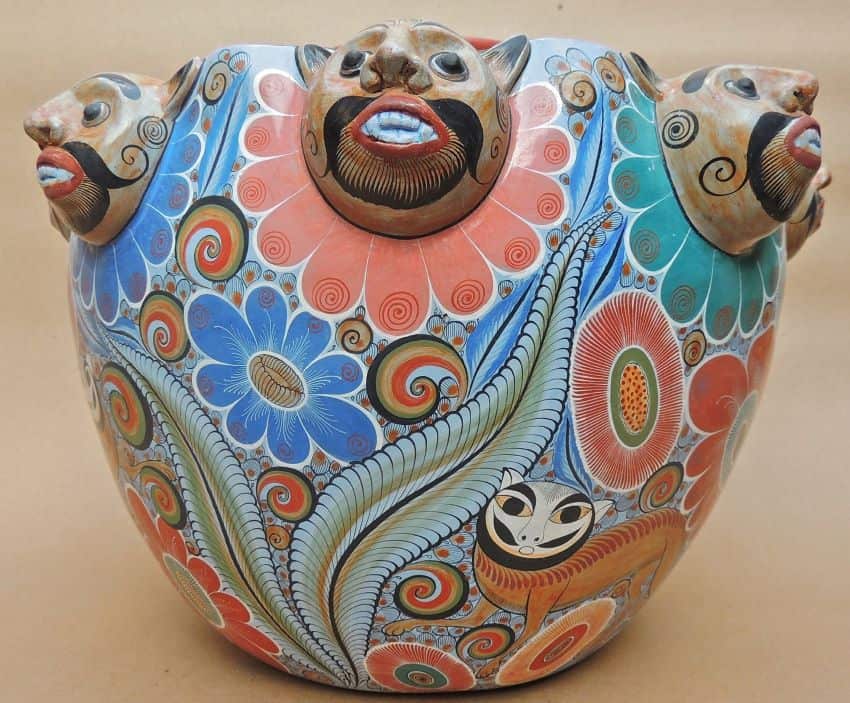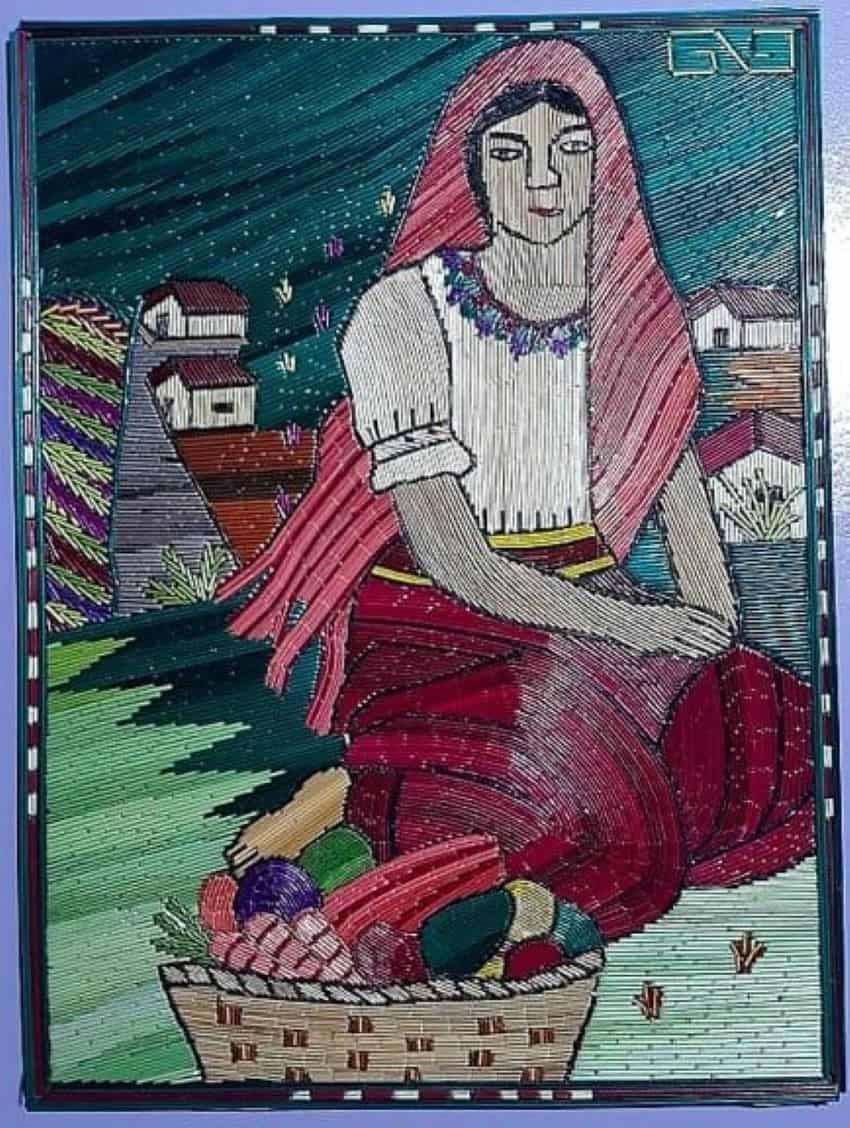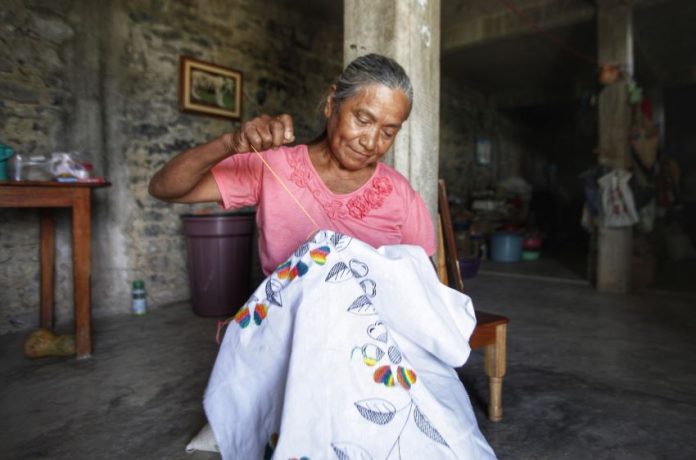If anything good comes from this pandemic, it may be that the Mexican artisan community “discovers” the internet.
Even before Covid-19, traditional artisans’ greatest challenge has been to get fair prices for their creations. Essentially, the problem is that they almost always live in poor, rural areas, far from urban and international markets where the people with the money and desire to support them can be found.
Traditionally there have been two ways for artisans to sell: the first is to middlemen, those who know where to buy crafts and where to sell them. The second is to travel to fairs and cultural events and pay for the right to sell there. Middlemen are often vilified, especially when the price they pay for crafts is compared to the retail price. There certainly are unscrupulous cads (including the government!) who take advantage of the artisans’ desperate need to bring money into the household. But to be fair, it is expensive to travel to the various small villages to buy small quantities of goods, then turn around and sell them to small niche markets.
Over the decades, there have been public and private initiatives with the aim of getting around this problem. Various museums have shops where they sell works on consignment, and the federal government has FONART, an agency to sell fine Mexican handcrafts. However, these have come under fire not only for underpaying artisans but for corruption as well.
Small private initiatives seem to do better. The Feria Maestros de Arte, for example, has operated for 20 years, holding an annual sales event at a yacht club at Lake Chapala in Jalisco. It is a nonprofit run by a group of Mexicans and foreigners that pays artisans’ travel expenses, arranges free sales space and lodges the artists in members’ homes. Selected artisans pay nothing to participate.

However, one resource that had been seriously ignored was the internet, despite the increasing demand for online purchasing. Then came Covid.
Early in the pandemic, Mexico News Daily reported on the disaster and the sense of panic that set in among artisans and those dedicated to supporting them. The need was so great and so sudden. Few, if any, artisans or organizations had the technical and marketing knowledge to start online selling from scratch. However, after various fits and starts, several initiatives seem to have hit their stride, and more are coming.
The Feria, with support from the United States-based Los Amigos de Arte Popular, graduated from sporadic sales on Facebook to a website dedicated to selling online. New York’s Friends of Oaxacan Folk Art (FOFA) has taken a different tack: they set up a program to connect artisans with Spanish-speaking experts in online marketing.
On March 8, 2021, the nonprofit Ayuda Mutua, Psicología y Derechos Humanos (Psydeh) and four indigenous women’s groups in the state of Hidalgo will officially inaugurate Bordamos Juntos (We Embroider Together), to support Otomí and Nahua textile artisans who live in the Tenango region, famous for embroidery of the same name.
Like the Feria, Psydeh is shifting from an event model to an online one. But Bordamos Juntos looks not only to help with immediate economic needs but also “… to disrupt this narrative by fostering a [from the] ground-up, women-led social enterprise project that offers immediate and long-term results…” So it is no coincidence that it launched on International Women’s Day.
Such efforts to give women more political and social power through income have worked in projects such as the Zongolica weaver’s cooperative, but it remains to be seen if the goal of having sales support community organizing work will pan out. However, Psydeh takes donations through several crowdfunding sites and is legally registered with the Mexican government.

Bordamos Juntos is slated to run in March and April, longer if sales are good. Embroiderers will receive a direct payment of 1,000 pesos per piece, with the hope of making it permanent by the fall.
One interesting question to ponder is, what could be the fate of middlemen and events as the pandemic drags on? Feria Maestros de Arte founder Marianne Carlson, whose event is canceled for 2021, says that her organization looks to continue developing online solutions for artisans. As for middlemen, Carlson believes that the effect on them “… depends on the ethics of the middleman. There are costs in online selling that may force them and others to raise prices,” she said, citing the need to update websites and, most importantly, to create high-quality photographs since patrons can’t see a piece live. She recognizes that this is a huge challenge for many artisans so used to a face-to-face model.
These challenges make efforts by all of these organizations extremely important in the short and mid-range time frame. It is more than just setting up a Facebook page; it is changing how the artisans think about their businesses. The Feria, FOFA, Ayuda Mutua, and Psydeh programs recognize this need and are developing more holistic approaches.
Government agencies are way behind, fretting about opening hours on stores. The internet is a cheap way to present crafts to markets, but it does not solve the logistics of shipping. If the government really wants to help, it should focus on revamping its postal service to this end.
Leigh Thelmadatter arrived in Mexico 17 years ago and fell in love with the land and the culture. She publishes a blog called Creative Hands of Mexico and her first book, Mexican Cartonería: Paper, Paste and Fiesta, was published last year. Her culture blog appears regularly on Mexico News Daily.
